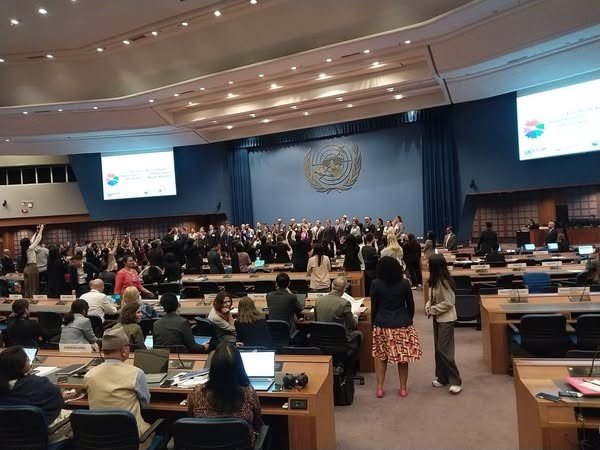A packed agenda was put together by officials at the International Organisation for Migration (IOM) for the 2nd Asia Pacific Review of the Global Compact of Migration (GCM) for deliberation at the UN-ESCAP in Bangkok from the 3rd to the 6th of February.
The GCM was launched six years ago. Its primary mandate is to get commitment and agreement from member states to ensure migration is voluntary, safe, regular, and orderly. To facilitate this process 23 objectives that were designed as guiding principles to assist countries navigate their migration governance pathways.
This 2nd review is a precursor for the preparation of the high-level International Migration Review Forum (IMRF) due to be held in New York in 2026 with reaffirming commitments to aligning migration governance with the Sustainable Development Goals (SDGs), recognizing that protecting all migrants and enabling their full contributions to society are essential to achieving the 2030 Agenda for Sustainable Development.
It was well attended by governments, civil society organisations, INGOs, faith-based organisations, trade union bodies, UN agencies, and other international bilateral and multilateral organisations in the Asia Pacific region.
Migration is facing some of the toughest challenges in our history. We need commitment from our governments and from all of us to change the narrative and ensure that the rights and privileges of people on the move are protected and upheld. The Covid-19 pandemic has further exacerbated this situation. During the three-day discussions, we addressed various challenges, shared lessons learned, highlighted best practices, and explored an inclusive path forward.
Our region accounts for 40% of international migrants on the move searching for better economic prospects, and education prospects. This region also accounts for many young people who are on the move, including large numbers of women seeking economic opportunities. In 2023 migrants from the Asia Pacific region sent home USD300billion to their homes for economic and social development in their countries.
Migrants in return want governments to ensure decent work with fair wages and social and legal protection. However, when these essential benefits are compromised, particularly for women migrants and other vulnerable individuals, their rights are often neglected, and they become susceptible to being undocumented.
Our collective challenges and responsibilities
Governance of migration should not depend solely on governments; however, they must take the lead in a sincere and inclusive effort that engages a variety of stakeholders and sectors. Civil society organisations and trade union bodies are committed to contributing to the governance of migration. A crucial aspect of migration is the recruitment industry, which encompasses private and state-operated entities. Given this context and our proactive approach, we need to address the following issues.
- Transnational organised crime in both human trafficking and human smuggling of migrants.
- Unscrupulous recruiters and their agents operating in organised rings.
- Visa issuance and their violations
- Contract violations of migrants
- Wage negotiations, and wage theft
- Social security
- Legal rights/access to legal justice
- Social and economic reintegration
- Climate change and its impact on migration
- National, subregional, and regional cooperation
- Migrant health and mental health
- Detention, imprisonment, and deportation
- Migrant families on the move
- Migrant youth, education, and skills
- Social media and the impact of migration
The 23 GCM objectives confront these challenges head-on and present innovative solutions that illuminate the path forward.
Sri Lanka Delegation


